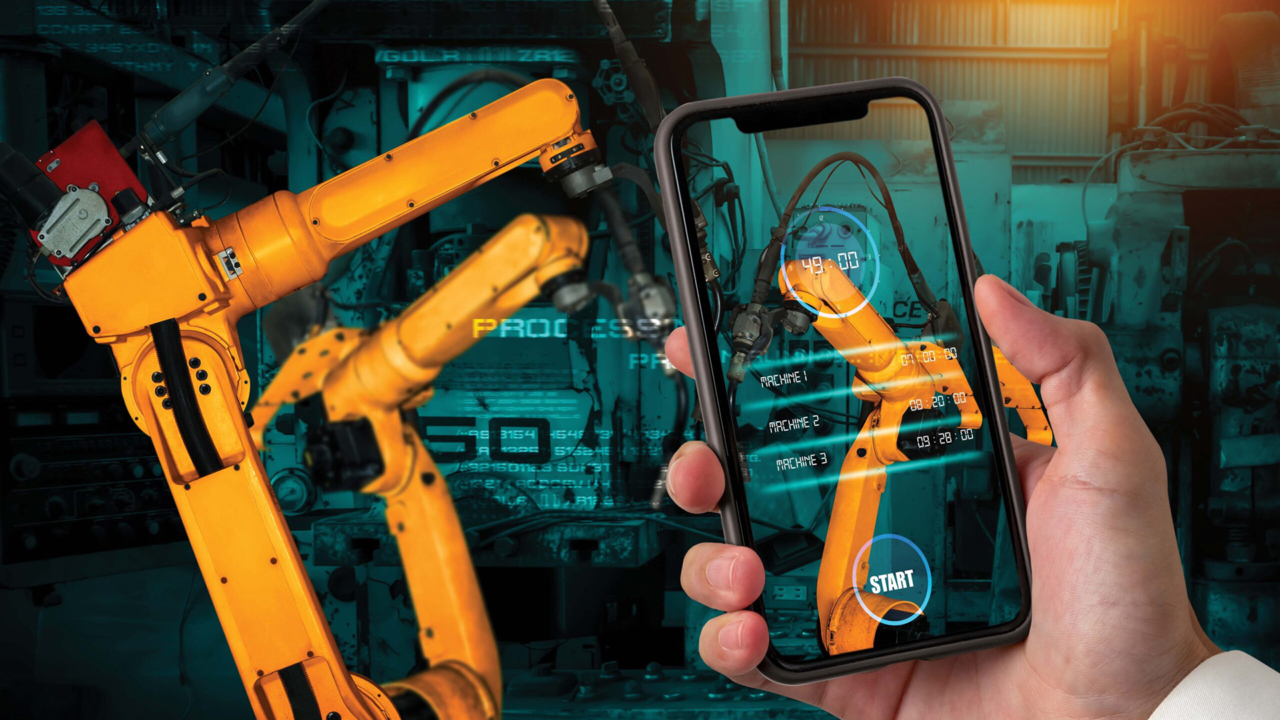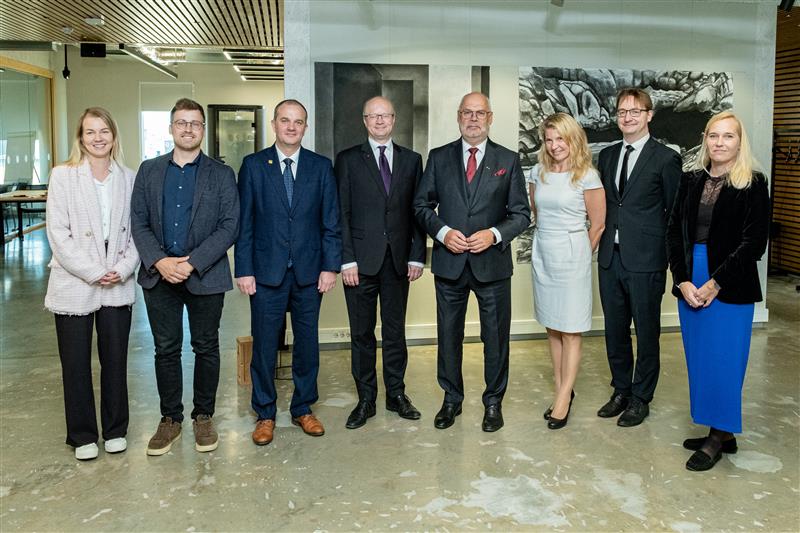Estonia received 6 million euros to support the digital leap of industrial companies
The three-year project of the artificial intelligence and robotics center AIRE, which helps Estonian companies rise to a new digital level, received the approval of the European Commission at the beginning of June. This means a cash injection of 6 million euros for three years, half of which comes from Europe and half from Estonia.
The goal is to use this money to create 54 artificial intelligence and robotics demo projects with the help of top scientists within three years, and the digital level of Estonian companies will increase by 25 percent. If these goals are met, the funding will continue for another four years, in which case the grant amount will reach 14 million. This is a short step from the European point of view, but a long one from the point of view of the development of Estonian science and industry. The AIRE center, which has been piloting services since October 2021, has already supported the digitization and increased competitiveness of 75 Estonian industrial companies. The center has advised, trained and brought together the company’s needs and the high-tech solutions offered by Estonian researchers. Any small or medium-sized company that needs a development leap or is looking for robotics or artificial intelligence solutions is welcome to AIRE.
Tallinn University of Technology rector Tiit Land admits that if the impact of the six million euro financial injection will be felt most quickly by the project parties, researchers and Estonian companies, then in a few years the entire Estonian society and people will already be part of it.
“I dare to believe that its impact on the Estonian economy will be very large in the long term. A jump in the quality of many Estonian industrial companies can be expected, which will be achieved in cooperation with top Estonian scientists. As a result, high technology and artificial intelligence will also reach companies where major changes have been postponed or efforts have been made to increase productivity in other ways. Companies that have transformed their operations with the support of AIRE have experienced positive changes in a short time. Turnover and income have increased, but the changes have also affected other indicators and values, including the attitude towards labour and the employee. All in all, Estonia will become richer and more caring, and the environment will be cleaner,” says Land.
According to the Minister of Entrepreneurship and Information Technology, Andres Suti, artificial intelligence and robotics solutions contribute to the growth of the added value of companies. “Innovation helps to do work smarter, more resource-saving and with greater efficiency. Innovative solutions are today and in the future the locomotive of Estonian industry, which helps to increase the quality of products and places local companies visibly on the world map. Continuity in innovation is the key with which Estonia, which is small in terms of area and population, emerges as global businesses that operate successfully on international markets. Digitization helps increase the competitiveness of Estonian industrial companies, and additional funding supports the innovative solution reaching more Estonian companies that need a digital development leap to reach a new level,” says Sutt.
Kristjan Vassil, research vice-rector of the University of Tartu and head of business relations, is happy that AIRE allows universities and the private sector to approach each other in a way that is beneficial to both.
“The artificial intelligence and robotics solutions and consultations offered by the AIRE center are definitely a worthwhile way for companies to increase efficiency and maintain competitiveness. New high-tech innovations therefore do not remain only theoretical, but find a practical solution in the Estonian economy on both a local and international scale. The additional funding received allows AIRE to develop into an even more valuable knowledge center for industrial companies,” says Vassil.
According to Kirke Maari, head of the AIRE center, the first season is over, we will continue our activities and help every company looking for support to find exactly the tailor-made solution it needs, involving the best Estonian top scientists and scientific achievements. “The biggest job is to bring together the researcher’s offer and the company’s need,” Maar notes.
He adds that the center has not had to search or convince small and medium-sized industrial companies (the main targets of the AIRE mission), but the companies stand in line to find the most suitable high-tech solution for their operations. Today, seven demo projects are under development, including a smart warehouse management system, a hospital mobile robot or an energy consumption diagnostic system based on artificial intelligence. Kirke Maar emphasizes that all created solutions can later be used and implemented by other Estonian companies free of charge.





